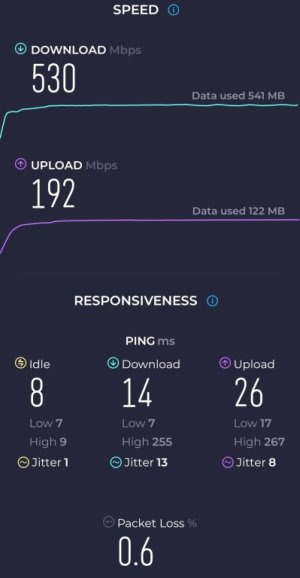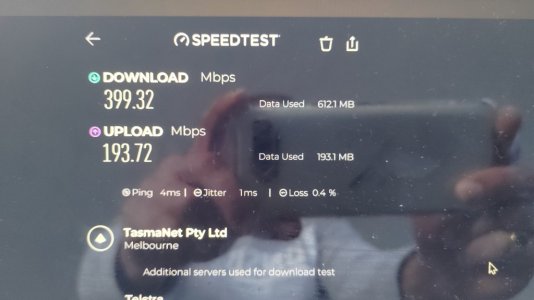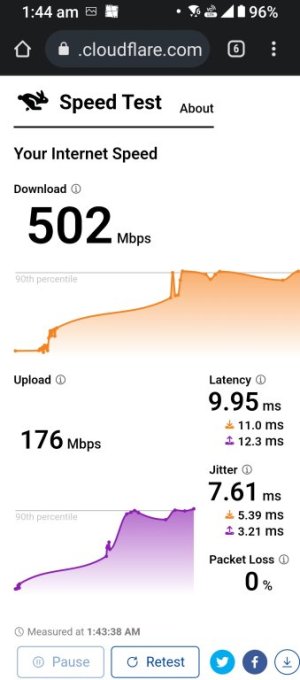DAOWAce
New Around Here
I don't see much talk about the AX6000 on these forums; which makes me feel like I've purchased a dud after finally testing the router out.
Here's the simplest way I can show the issue:
AC87U:

AX6000:

The AX6000 is consistently 2-3ms higher at baseline, and a bizarre 4-5x (30-40ms) higher during upload. EDIT: Upload is due to adaptive QoS being worse, see next post.
This does translate into actual applications, ie; traceroute monitoring and games' built-in ping feature. Higher minimums and averages, potentially jitter but that's harder to test.
I have ran these tests multiple times, rebooted the devices multiple times.
I have them configured as identically as I can. EDIT: I have even tested at default settings (see next post).
Updating to Merlin firmware did not change anything about this issue. (and actually decreased speeds with QoS enabled for some reason)
As I primarily play online games, a latency increase is the worst thing that can happen. Throughput is the least of my concern, and it's quite ironic that for a heavily 'gaming' focused router, the AX6000 is objectively worse than the 87U which has underpowered hardware and completely faulty wireless.
Unfortunately, I have to switch from the 87U because of its crippling issues. The router itself just bogs down when certain interactions happen with other devices on the network (notably traffic routed through a wireless AP) and I'm completely sick of it.
Does anyone have any insight into this bizarre issue? I doubt ASUS will give one damn if I contact them about it (already submitted in-router bug report), though I'm not somebody who can get around entry level CSR's.
Here's the simplest way I can show the issue:
AC87U:

AX6000:

The AX6000 is consistently 2-3ms higher at baseline, and a bizarre 4-5x (30-40ms) higher during upload. EDIT: Upload is due to adaptive QoS being worse, see next post.
This does translate into actual applications, ie; traceroute monitoring and games' built-in ping feature. Higher minimums and averages, potentially jitter but that's harder to test.
I have ran these tests multiple times, rebooted the devices multiple times.
I have them configured as identically as I can. EDIT: I have even tested at default settings (see next post).
Updating to Merlin firmware did not change anything about this issue. (and actually decreased speeds with QoS enabled for some reason)
As I primarily play online games, a latency increase is the worst thing that can happen. Throughput is the least of my concern, and it's quite ironic that for a heavily 'gaming' focused router, the AX6000 is objectively worse than the 87U which has underpowered hardware and completely faulty wireless.
Unfortunately, I have to switch from the 87U because of its crippling issues. The router itself just bogs down when certain interactions happen with other devices on the network (notably traffic routed through a wireless AP) and I'm completely sick of it.
Does anyone have any insight into this bizarre issue? I doubt ASUS will give one damn if I contact them about it (already submitted in-router bug report), though I'm not somebody who can get around entry level CSR's.
Last edited:







